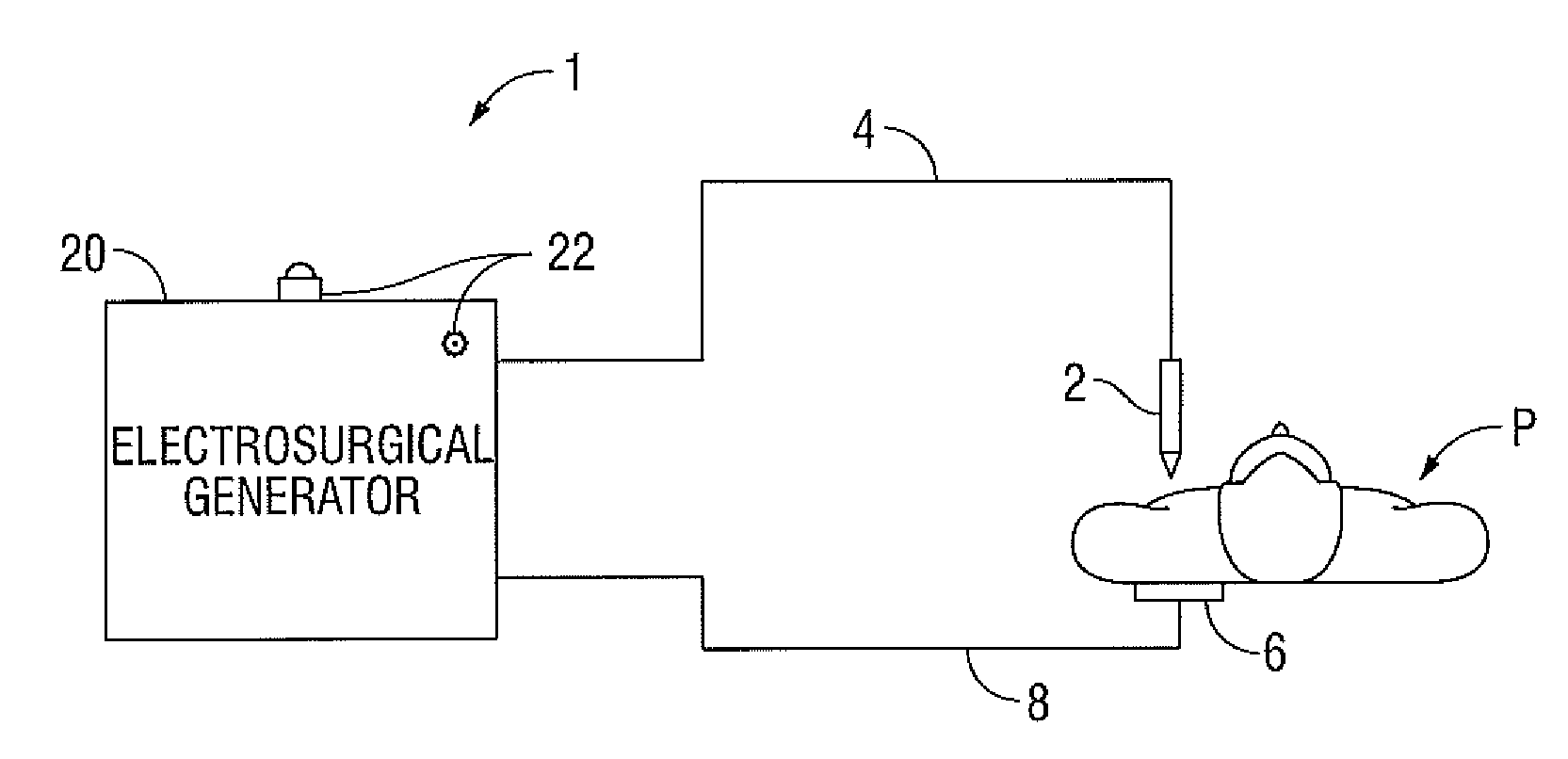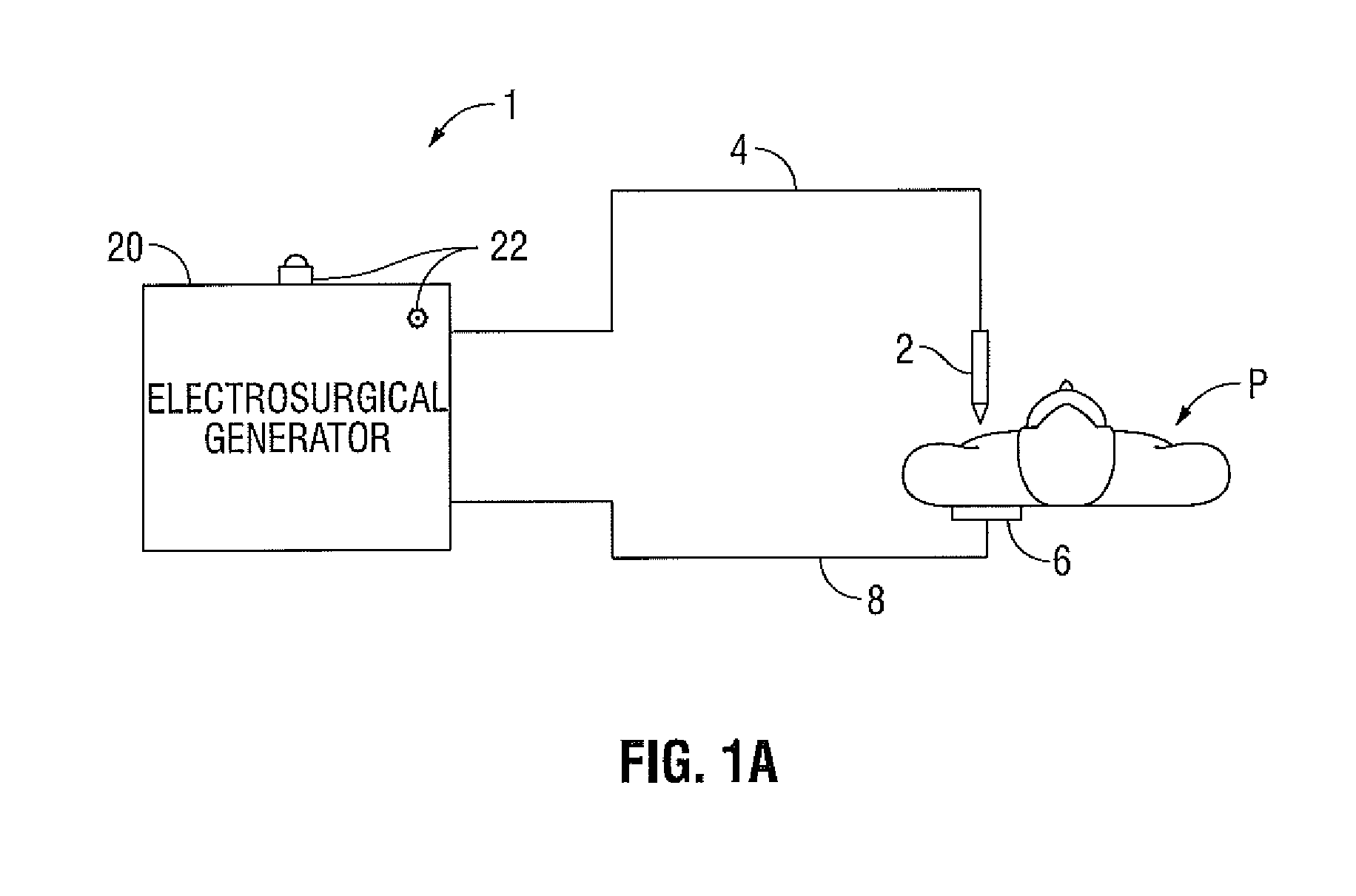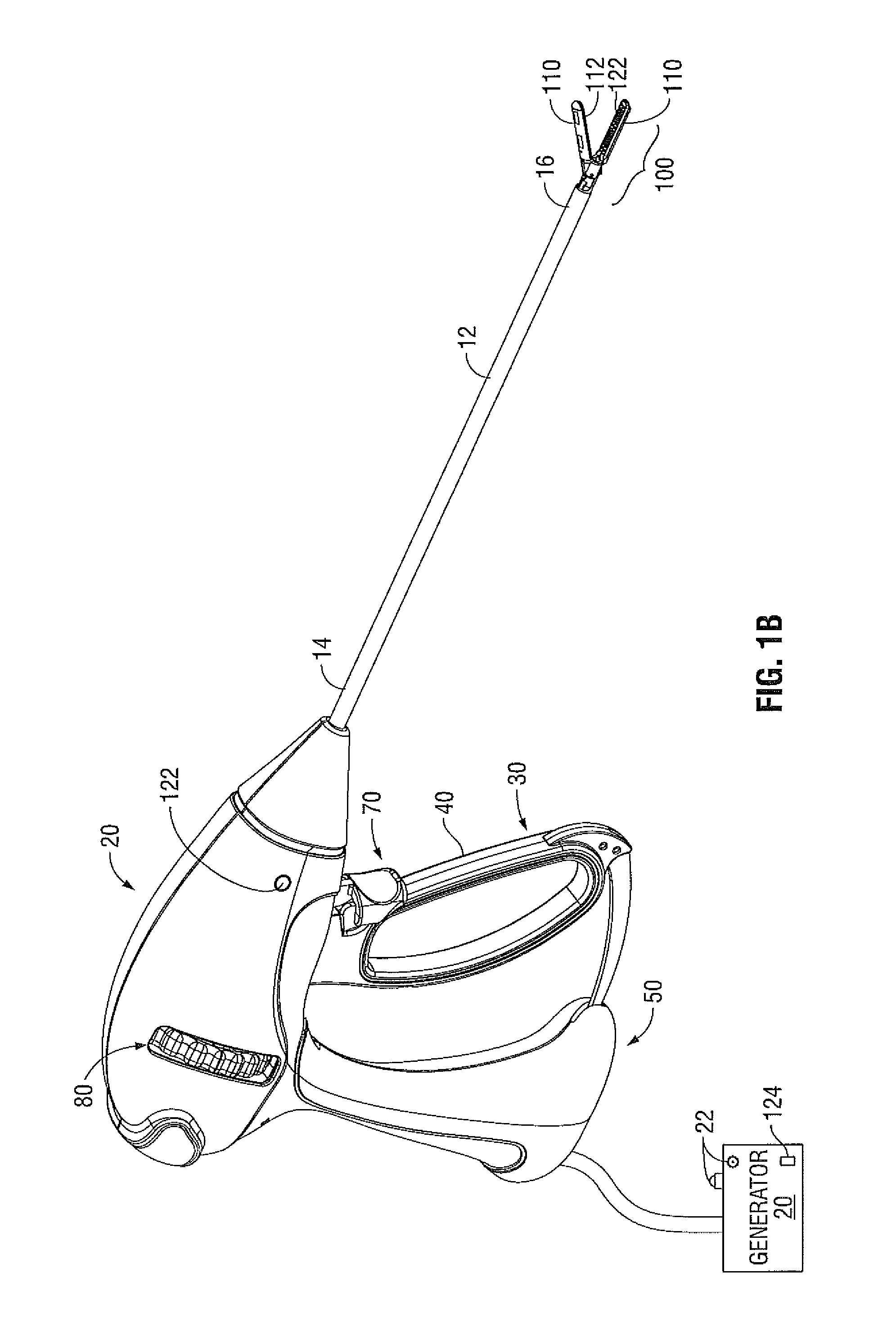System and Method for Determining Proximity Relative to a Critical Structure
a technology of proximity and critical structure, applied in the field of open or endoscopic surgical instruments and methods, can solve the problems of inability to visually determine the anatomical structure of the surgeon, inability to effect proper treatment, and inability to use the same energy delivery configuration for treating the du
- Summary
- Abstract
- Description
- Claims
- Application Information
AI Technical Summary
Benefits of technology
Problems solved by technology
Method used
Image
Examples
Embodiment Construction
[0025]Particular embodiments of the present disclosure are described hereinbelow with reference to the accompanying drawings. In the following description, well-known functions or constructions are not described in detail to avoid obscuring the present disclosure in unnecessary detail.
[0026]An electrosurgical generator according to the present disclosure can perform monopolar and bipolar electrosurgical procedures, including anatomical tissue ligation procedures. The generator may include a plurality of outputs for interfacing with various bipolar and monopolar electrosurgical instruments (e.g., laparoscopic electrodes, return electrodes, electrosurgical forceps, footswitches, etc.). Further, the generator includes electronic circuitry configured to generate electrosurgical energy (e.g., RF, microwave, etc.) specifically suited for various electrosurgical modes (e.g., cut, coagulate (fulgurate), desiccate, etc.) and procedures (e.g., ablation, vessel sealing, etc.).
[0027]The present...
PUM
 Login to View More
Login to View More Abstract
Description
Claims
Application Information
 Login to View More
Login to View More - R&D
- Intellectual Property
- Life Sciences
- Materials
- Tech Scout
- Unparalleled Data Quality
- Higher Quality Content
- 60% Fewer Hallucinations
Browse by: Latest US Patents, China's latest patents, Technical Efficacy Thesaurus, Application Domain, Technology Topic, Popular Technical Reports.
© 2025 PatSnap. All rights reserved.Legal|Privacy policy|Modern Slavery Act Transparency Statement|Sitemap|About US| Contact US: help@patsnap.com



